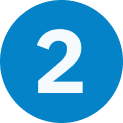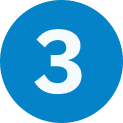Pharmaceutical translation services
Enhance your global market presence and compliance with local regulations through our pharmaceutical translation services.
Benefits of pharmaceutical translation

Comply with regulations
Regulatory bodies across the world require translation and localisation into the local language before a drug can be approved and sold in that market.

Increase patient awareness
Localising patient-centric marketing materials as well as product labels better informs patients of the benefits and risks associated with a drug.

Communicate information
Translation of all materials associated with a drug provides information directly and effectively to patients, doctors, pharmacists and nurses.

Win drug approval
Only 10% of potential drugs make it through the rigorous process to become FDA approved, and translation is a requirement.
Accuracy in our pharmaceutical translation services
- ISO standards:
As the first UK company to achieve both ISO 17100 and ISO 18587 certifications, we will go above and beyond to deliver a quality that exceeds expectations.
- Back-translation:
This service means that the content is translated back into the original language to ensure that every piece of information is correctly communicated.
- Quality-assured process:
We know that working with medical and health content means upholding the highest standards of quality and accuracy, and our quality-assured process means that each translation is thoroughly checked in several stages. The translation process is also fully traceable back to the individual linguists involved.
- Linguistic validation:
Linguistic validation, or the process of ensuring accuracy through simultaneous translation by multiple translators followed by back-translation, revision and review, makes sure that the content is valid not just linguistically, but also culturally.
Our pharmaceutical translation services:
- Scientific and medical reports
- Clinical trial materials
- Learning and training materials
- Patents
- Marketing documents
- Instructions for use (IFUs)
- Regulatory documents
- Clinical Outcome Assessments (COAs)
- Informed consent forms
- Patient Information Leaflets (PILs)
Clinical trials:
Nowadays, around 64% of clinical trials take place through offshoring. The most preferred offshore locations include China, India, Eastern Europe and Latin America. This means that many people involved in a clinical trial may not speak English at a comfortable level to understand key medical information.
Because of regulatory requirements, approval of a drug may hinge on accurate translation and localisation of documents associated with clinical trials. This is where our specialised pharmaceutical translation services can help you comply with regulations, win approval and help patients in a new market access important treatment.
eLearning and training materials
For pharmaceutical companies, the creation and distribution of training materials are key to educating a diverse group of stakeholders, including patients, healthcare professionals, pharmacists and even sales teams.
Here at Sandberg, we know that your learning materials…
Must be accurate and clear in communicating important health information.
Reflect your brand so must be in line with your quality standards, terminology and tone of voice.
Are written for a variety of audiences, requiring a translator who can adjust language for experts and non-experts alike.
Include interactive content, which combines text, image, audio and video and must be properly localised.
Why choose Sandberg
for your pharmaceutical translation project?

Compliance with local regulations through pharmaceutical translation
Complying with the strict regulations of pharmaceutical regulatory bodies is key if you want to get a drug approved for a new market. These regulations include mandatory translation of various materials, including the following:
- Instruction leaflets
- Package inserts
- Consumer medicine information
- Labels
- Marketing materials
We know that the approval of a new drug for an overseas market hinges on accurate translation. That’s why we always use linguists with subject-matter expertise in this field to work on pharmaceutical translation projects. Not only are they knowledgeable about the specialised language of the pharmaceutical industry, but they are up to date on regulations too.
In addition to our people, our resources also give you control over your content while ensuring that translations are completed to a high standard of quality and in line with local regulations of the target market.
Terminology management:
We work with you to create, manage and store your company’s terminology in a termbase, ensuring accuracy and consistency across all your translations.
Translation memories:
By storing previous translations, our translation memory technology means that the translation process becomes more efficient as you work with us.

Transparency for patients and healthcare professionals through pharmaceutical translation
Language barriers are frustrating for patients, pharmacists, doctors and nurses. Studies have found that patients receive worse care when there is a language barrier present and other studies have found that healthcare professionals struggle with their mental health when they cannot provide optimal care due to such barriers.
Benefits of transparency through translation:
Open communication: When you invest in the translation of your pharmaceutical materials, you are communicating information openly to all parties involved, including patients and healthcare professionals.
Better health outcomes: Conveying information in a patient's own language also informs them about the benefits and risks of the medicine you are providing, and more knowledge means they can better address their health issues, both now and in the future.
Trust: This type of transparency means you can build trust with customers, who know that you are prioritising their health by helping them understand the effect of the drug on their life.
Meet drug approval requirements: Translation is a requirement in many different parts of the pharmaceutical drug approval process. For example, a patient must have access to an informed consent form for a clinical trial in their native language.

Security and privacy in our pharmaceutical translation services
Pharmaceutical documents often include sensitive materials, which must be handled carefully to ensure privacy for everyone involved.
At Sandberg, we have robust security arrangements, including safe file transfer methods (cloud-based or via encrypted ZIP files), data sanitisation to prevent storage of personal and commercially sensitive data in translation memories, and GDPR-compliant procedures for handling personal data and sensitive personal data.
Let's talk about your next project